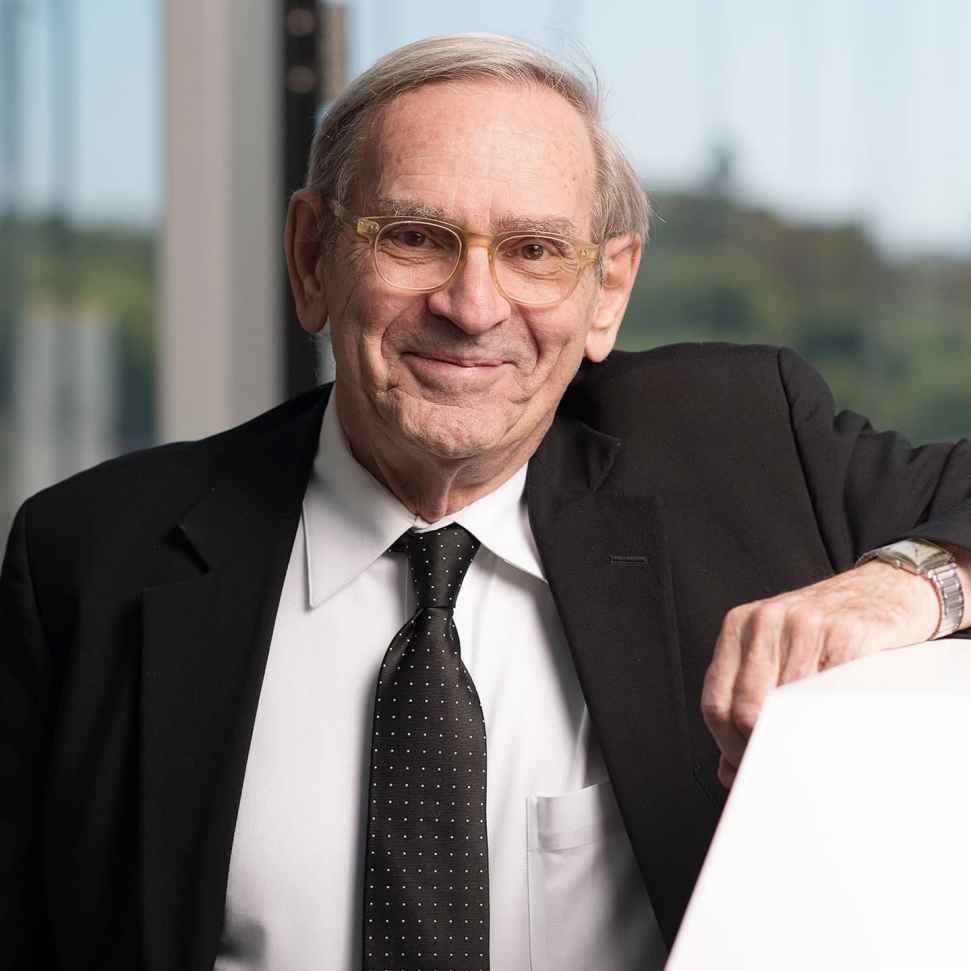Research Expertise
Emphasising resilience and trust.
The Jeff Bleich Centre will conduct and commission interdisciplinary research on the advance of digital technologies that impact societies and governments. The research will have an emphasis on resilience and trust.
Research Team
Professor Melissa de Zwart FAAL, BA (Hons), LLB (Hons), LLM, PhD - Centre Director
Professor Melissa de Zwart is the Director of the Jeff Bleich Centre at Flinders University.
Professor de Zwart is a thought-leader in the area of law and technology and has a strong international profile in the fields of internet law and the regulation of access to and uses of outer space. She previously served as Dean of the Adelaide Law School, University of Adelaide (2017-2021), and Chair of the Council of Australian Law Deans. She is currently the Deputy Chair of the Space Industry Association of Australia, Board Member of the Australian Academy of Law and a Lieutenant in the Royal Australian Navy (Reserve).


Don DeBats –
Emeritus Director and Head of International Programs and Partnerships
Prof Don DeBats is Head of American Studies and former Director of the JBC at Flinders; he is a Visiting Research Professor at the University of Virginia and a Resident Fellow at Virginia Humanities. He is joint CI on defence contracts, providing leadership on Geographic Information Systems (GIS) technologies and network methodologies and analysis. His research interests are comparative Australian-Canadian-US politics and political history, US foreign policy, democracy and governance. His historical research is supported by major grants from the National Endowment for the Humanities Collaborative Research Program and explores earlier challenges to democratic norms. His most recent publications demonstrate the operational independence of social and spatial networks.
Dr Melissa-Ellen Dowling
Dr Melissa-Ellen Dowling is a Research Fellow in digital technology, security, and governance with the JBC, Flinders University. Her research interests centre around democratic resilience, ideological extremism, foreign interference, digital information operations, and national security policy. Currently, Dr Dowling is chief investigator on the government-funded project Modelling Digital Ideological Extremism and also contributes to wargaming scenario development. She also explores the national security dimensions of online political microtargeting.
Prior to this, she was co-investigator on a Defence-sponsored project, Countering Foreign Interference, which modelled democratic resilience to counter foreign interference in Australia, and also conducted research for the Department of Defence on the use of digital information warfare techniques by non-state actors.

Joel Lisk
Joel Lisk is a Research Associate - Space and Regulation at Flinders University. Joel principally researches the laws applicable to private and commercial activities in new operating domains with a particular focus on the use of outer space. Joel’s main research focuses on how domestic laws are designed and their consequential impacts on commercial activities.
Joel is a qualified lawyer, having previously worked in the areas of consumer and competition law, privacy and data, not-for-profits, and complex regulatory regimes. Joel continues to provide advice in these areas. Joel is also the Secretary of the Space Law Council of Australia and New Zealand.
Joel has also presented at numerous domestic and international conferences on the topic of legislative compliance and regulatory burdens in the commercial space sector and published technical and broad-audience commentaries on Australian and foreign domestic space law issues.
Joel is also a PhD Candidate researching how nations legislate for commercial activities in outer space.

The impact of rapid technological change in the digital domain.
• Artificial intelligence (AI)
• Regulation
• 5G
• Blockchain
• Health data security

The socio-cognitive and narrative challenges for democratic governance in the cyber age.
• The erosion of trust and the
weakening of societal cohesion
• Public policy considerations
• Weaponization of social media

Challenges to national and international security.
• Defence and intelligence
• Economics and trade
• Election security

Democratic resilience.
• Human behaviour and social media interactions
• Ethical governance in the cyber age
• Corporate and public governance with social responsibility and civic obligation
• Individual empowerment through knowledge and trust
• Blockchain technology as a mechanism to re-establish trust
• Patterns of corruption in digital pathways
Research themes
Research Affiliates
Professor Karl Sammut Professor, College of Science and Engineering
Karl Sammut completed his Ph.D at The University of Nottingham (U.K) in 1992 and was employed between 1992 and 1995 as a Postdoctoral Fellow at The Politecnico di Milano (Italy), and at Loughborough University (UK).
He commenced his appointment at Flinders University in 1995. He is currently a Professor with the Engineering Discipline in the College of Science and Engineering. His primary research activities are in the area of autonomous marine vehicles, including mission planning, vehicle navigation, guidance and control, and situation awareness. Prof Sammut is the Director of the Centre for Maritime Engineering at Flinders University.
Professor Tania Leiman College of Business, Government and Law
Tania Leiman is currently the Dean of Law in the College of Business, Government and Law.
She is a teaching specialist bringing digital technology into the Flinders Law degree and into the classroom for students. She is a member of the Legal sub-group of the Australian Driverless Vehicle Initiative Policy & Risk Group.
Dr Maryanne Kelton
Maryanne Kelton is a Senior Lecturer in International Relations at Flinders University and a research leader for the JBC. Maryanne’s research prioritises Australian foreign policy, social cybersecurity and trust, the Australia-US alliance, and the economic-security nexus. She is currently working in a strategic multilayered research program on uncertainty and trust in the digital age. Maryanne’s recent publications with her JBC counterparts include Australian security in the digital age, and the securitisation of cyberspace in Australia-US relations.
Building partnerships
Maritime Engineering
(Professor Karl Sammut)
Professor Samut leads research on autonomous marine systems and specialises in the control of smart structures, maritime electronics, electrical systems, robotics, fatigue analysis, and video and image processing. Research programs provide a focus on advanced control systems, autonomous underwater vehicles, and robotic terrain vehicles.
Australian Industrial Transformation Institute (Professor John Spoehr)
AITI provides high level industry, economic and workforce research to respond to new and future technologies, industry and workforce demands. The Institute’s work seeks to deepen understanding of the human and institutional dimensions of change, inform strategy, policy and program development.
Tonsley Manufacturing Innovation Hub (Professor John Spoehr)
The Tonsley Manufacturing Innovation Hub (TMI) has a global and local focus supporting start-ups, and extends its reach into the State’s defence industry, the advanced manufacturing section nationally and cyber security at both State and Federal level.
Transport Systems
(Professor Rocco Zito)
Professor Zito leads multi-disciplinary studies of the economic, operational, social and environmental issues associated with transport and logistics aimed at improving the performance, operation and understanding of transport and logistics. Research includes the five year trial of FLEX the driverless electric shuttle at the Tonsley campus.
![]()
Sturt Rd, Bedford Park
South Australia 5042
South Australia | Northern Territory
Global | Online
CRICOS Provider: 00114A TEQSA Provider ID: PRV12097 TEQSA category: Australian University









